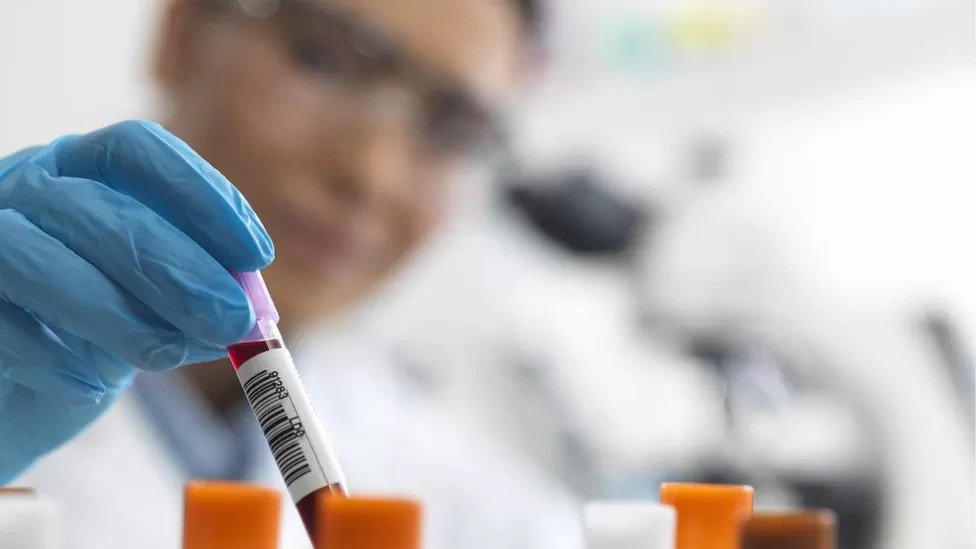More needs to be done to dispel the stigma that still persists about HIV and Aids, a man living with with the virus has told BBC News NI.
The Public Health Agency (PHA) recorded 76 new cases of HIV in Northern Ireland in the latest figures covering 2021.
The figure is an increase on 2020, but is still below the peak of 103 cases in 2015.
David Black, who was diagnosed in 2005, said he feared he would be “stuck with the stigma” for the rest of his life.
Mr Black said people living with HIV should not have to apologise for their status.
The PHA said there are currently 1,325 people living with the virus in Northern Ireland.
HIV charity Positive Life has warned that while medical advances have improved the lives of people with HIV, misinformation continues to cause harm.
Jacquie Richardson, Positive Life’s chief executive, also said the “biggest issue for them still remains the stigma that is associated with HIV”.
“That is very definitely a legacy from the awareness campaign that there was around in the 1980s,” she added.
“People took a little thread of what they heard, and then they created it into something else and we’re still dealing with the legacy of that.”
Recounting an example of the myths that still persist, Ms Richardson said one person had told her they had to use specific cutlery which visiting family.
‘You shouldn’t have to apologise’
Mr Black, who uses the services provided by Positive Life, told BBC News NI that he revealed his diagnosis shortly after getting it, following a scare in which he feared he could transmit the virus to his family.
“I told [my parents] that day and I actually apologised because I knew that they’re going to be worrying about me for the rest of their lives, or apologise for just being reckless.
“You shouldn’t have to, it’s a virus. You don’t apologise for catching a cold and it’s a virus as well.”
He added: “My mum just sat there completely shocked. My dad was great about it and wanting to know more information.”
Mr Black said he has experienced threats of violence over the condition and said myths around HIV often revolve around how the virus is spread.
In the years since his diagnosis, Mr Black said the “drawer full of tablets” he used to require has reduced to as little as a tablet a day.
Mr Black also said that he experienced stigma when receiving medical treatment in the years after he was first diagnosed.
“They would pass everything off as [part of the virus], instead of treating me like a normal patient.”
However, he said the medical profession has improved a lot since then with experience and better education on the condition.
What is HIV?
Human Immunodeficiency Virus (HIV) is a virus that attacks and destroys the body’s T lymphocytes, a type of white blood cell, the reduction of which can then lead to the development of Acquired Immune Deficiency Syndrome (AIDS).
The infection is transmitted by body fluids, often during unprotected sex, but also through cuts and injecting drugs using unsterilised needles.
Individuals with AIDS have a weakened immune system and so are more vulnerable to opportunistic infections.
Without immunity, infection by micro-organisms, such as those that cause tuberculosis and pneumonia, becomes more common, and can be fatal.
There is no cure for HIV/AIDS although many scientists are trying to find one.
Currently, people who carry the HIV infection are given antiretroviral drugs which work by stopping the virus replicating in the body.
line
Ms Richardson has called for “consistent” sexuality and relationship education to be implemented in schools.
Positive Life has also launched a scheme for employers to help tackle the myths that surround HIV.
In the latest figures for Northern Ireland, drug use saw the biggest increase in how people contracted the virus; there were 14 cases of this type compared with five in 2020.
Dr Rachel Coyle, a consultant with the PHA, told BBC News NI: “That’s something that does merit particular attention in terms of what actions we take both to prevent infections in that group, and to ensure that we’re offering adequate care to people who have been diagnosed with HIV.”
She said the increase was a new finding and the PHA would look further into targeted prevention measures such as needle exchanges and targeted testing.
Of the 76 people diagnosed with HIV in 2021, 31 were men who have sex with men and 21 diagnoses were made among heterosexual men (nine) and women (12).
NI clinic to offer access to HIV drug
Church ‘must do more’ for people with HIV
Wendy Austin recalls last moments with brother who died from Aids
‘Accessing treatment vital’
Dr Coyle said people with HIV can receive anti-retroviral treatment to suppress the viral load and make the virus undetectable.
This means people who have an undetectable viral load can not pass the virus on to others, including sexual partners or from a mother to a baby in the womb.
“[Access to treatment] has a major role in stopping transmission of HIV as well,” she said.
For information on the symptoms of HIV and STIs and for details of GUM clinics, visit Sexual Health Northern Ireland.








